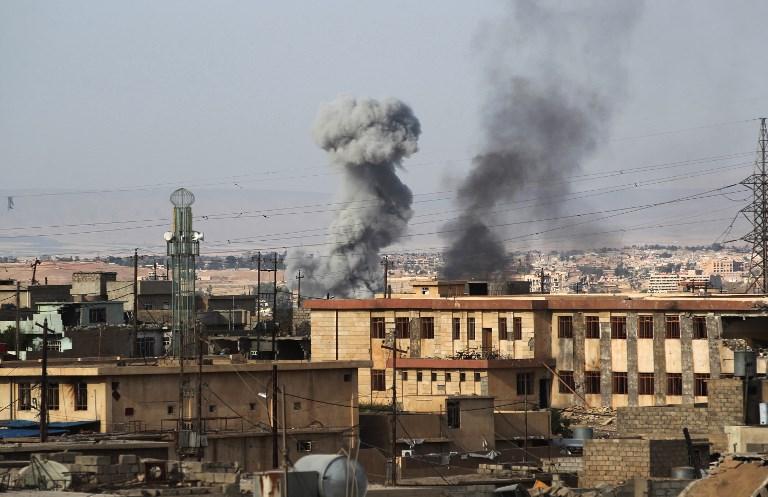Tunisia divided over equal inheritance for women
KASSERINE/TUNISIA: Souad Gharsalli lives in a rented flat in the center of Kasserine, in western Tunisia, baking and selling artisanal bread to make money. But she should be growing olive trees for a living, she says.
Gharsalli, 47, grew up with three brothers and six sisters on her family’s 7 hectares (17 acres) of land in the region of Kasserine, on which they grew olive trees and grains.
When their father died in 1997, Gharsalli and her sisters inherited half as much land as their brothers, in accordance with Tunisian law.
Then one of the brothers asked his sisters to sign a document. The women, who are only partially literate, later found out they had given up any claim to their father’s land.
“We thought we were just giving them the right to work on our land,” Gharsalli told the Thomson Reuters Foundation. “But after that, we had no right to any of it.”
Despite laws protecting their right to inherit, many women in Tunisia struggle to get their allocated share. According to government figures from 2014 — the latest available — in 85 percent of cases women got no land at all when their fathers died.
 Now, a proposed new law could give women and men an equal share of inheritance.
Now, a proposed new law could give women and men an equal share of inheritance.
The proposal, due to be debated by Parliament, has divided opinion across Tunisia, as well as other parts of North Africa and the Middle East.
Supporters say the law, which was presented to the country’s legislature in February, could give Tunisian women greater financial autonomy. Government figures show that less than five percent of women in Tunisia are registered land owners.
National polls show almost 60 percent of women in Tunisia are against the proposal, however, as it seeks to replace legislation that is based on Islamic law.
After opposition from conservatives, the original draft law was amended to allow individuals to “opt out” and continue to allocate inheritance according to the current rules.
“This will be the first Arab country that will have legislated on this question, which is sensitive and taboo because it is said to be written in the religious texts,” said Khadija Cherif, coordinator of the commission on inheritance at the Tunisian Association of Democratic Women (ATFD).
“But (for me) this is not a question of religion. It is a question of economic power, which gives men power in the family and over the women.”
‘You will get land from your husbands’
Advocates of the proposal know that even if the text is passed into law, social pressure and informal family arrangements could still block women’s access to land.
Before Hayet Nasri’s father died, he told his family he would leave his 14 hectares of land to only one of his four sons.
After their father’s death, the brothers instead agreed to share the land between them. Now they have 200 olive trees each, and Nasri and her five sisters have none.
“The sharing of the land is not legal, it is not official. It’s done within the family, not the court,” said Nasri, who rents a house in Kasserine with her husband and five children.
To justify their actions, her brothers told her and her sisters: “You are married. You will get land from your husbands, not from us.”
But if all the land a woman has is from her husband, a divorce can leave her with nothing, said Ahmed Mbarki, a lawyer in Kasserine.
Tunisian divorce law provides for an equal split of property acquired during the marriage, but that applies only to residences, not land. Even so, “the husband will try to get around it,” said Mbarki.
“The land is always in the hands of the man, the husband, the father. If there is a divorce — and there are many — the husband gives nothing to his wife.”
Mbarki has also seen many inheritance cases where women willingly give up their rights to a portion of their fathers’ land.
“The sisters say, ‘I love my brother, I want to give them my part, I don’t want to cause any problems,’” he said.
First steps
Cherif of the ATFD — which has been leading the campaign for the new law — sees the proposed law, and the debate surrounding it, as promising “first steps” toward change.
“There is a lot of silence around injustice against women,” she said.
“It (the law) will allow those who think in silence that their situation is unjust to defend themselves, and it will allow others to become conscious of the fact that they have and can use this right. That will take time.”
She added that the ATFD is seeing more women fighting for their inheritance rights in court today compared to 20 years ago.
Gharsalli is still waiting. After divorcing her husband in 1998, she did not re-marry and now lives with her son.
Last year, her brothers promised to give her a plot of land but later changed their minds.
“My wish is to get the chance to own some part of this land to plant even just 20 olive trees to live off of,” she said.

In rural Tunisia, inheritance reform offers women rare boostTunisian president proposes inheritance equality for women, with exceptions



